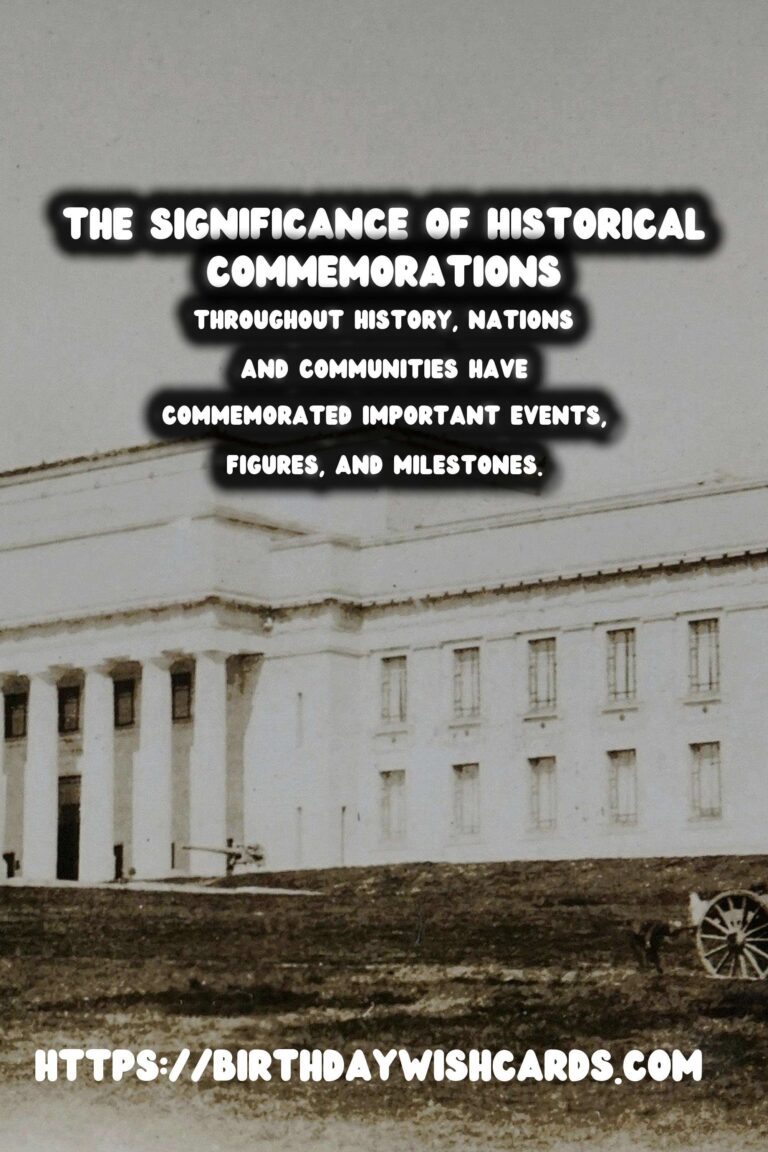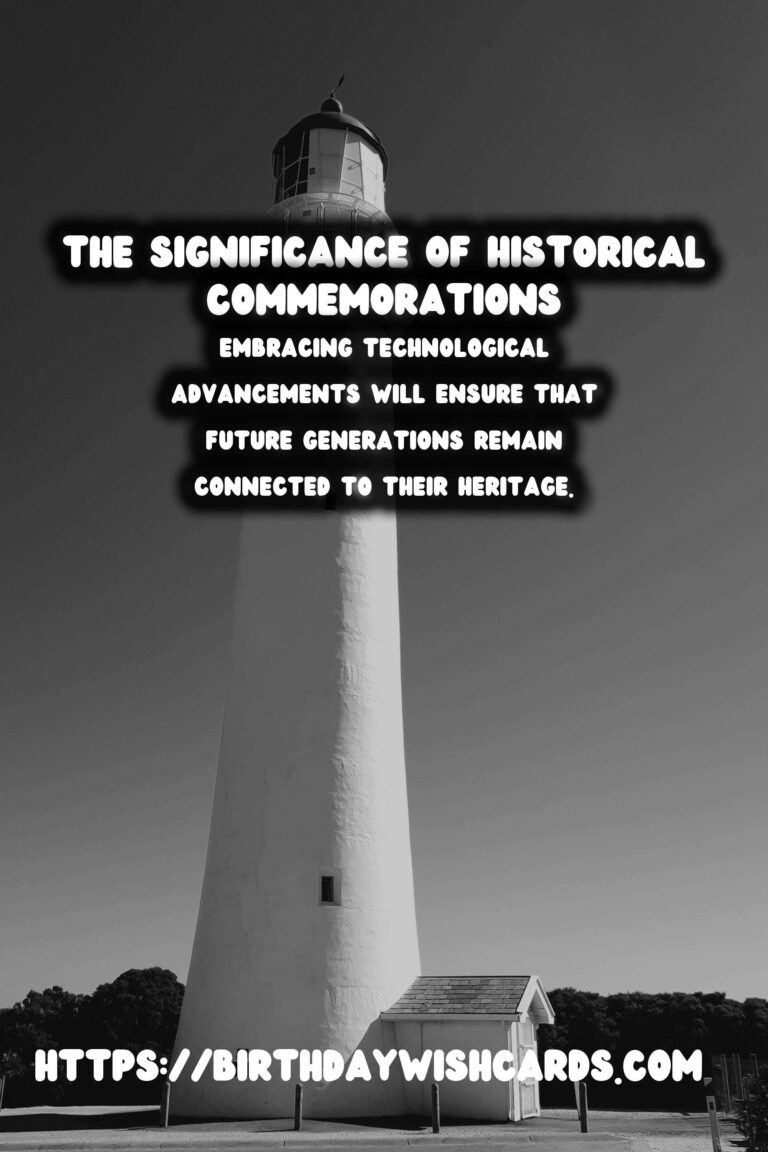
Throughout history, nations and communities have commemorated important events, figures, and milestones. These historical commemorations serve not just as a means of remembering the past, but also as vital practices that contribute to collective memory and societal healing.
The Importance of Remembering History
Remembering history is an intrinsic part of human identity. Historical commemorations help solidify those memories, allowing societies to look back, understand their past, and construct a narrative that informs their present and future. From national holidays to momentous anniversaries, these events play a crucial role in shaping national identity and collective memory.
Building a Collective Memory
Events such as national Independence Days, veteran remembrance ceremonies, and cultural heritage festivals are significant in binding communities together. They provide a shared experience that reinforces national pride, unity, and a sense of belonging among people.
The Role in Healing and Reconciliation
Commemorations not only aid in remembering triumphs but also in acknowledging past tragedies. This acknowledgment is critical in collective healing and reconciliation. By honoring the memory of those who suffered during wars or oppressive regimes, communities can address past injustices and work towards peaceful futures.
Commemorative Practices Around the World
Different cultures have unique ways of commemorating their history. While some nations celebrate with parades and fireworks, others opt for somber ceremonies. Each practice reflects the cultural values and historical contexts of the society.
Case Study: The Significance of Remembrance Day
Observed in many countries, Remembrance Day honors the armed forces and commemorates those who have fallen in military conflict. The ‘Poppy Day’ ceremonies in the UK and Commonwealth countries exemplify how symbolic acts — such as wearing poppies — can foster a sense of gratitude and remembrance.
Designing Meaningful Commemorations
To ensure commemorations remain relevant and meaningful, they must be inclusive and reflect the diverse narratives within a society. Engagement with marginalized communities and integrating a broad spectrum of historical perspectives can enrich these events.
Educational Potential
Commemorations serve as excellent educational tools, offering lessons on history’s multifaceted nature. They invite reflection upon past choices and underline the importance of learning from both the triumphs and mistakes of our ancestors.
The Future of Historical Commemorations
As we advance into a digital age, the manner in which we observe historical commemorations is evolving. Virtual reality, social media, and digital archives are transforming how people engage with history, broaden the reach and accessibility of these commemorative practices.
Embracing these technological advancements will ensure that future generations remain connected to their heritage, continuing the cycle of memory and healing.
In conclusion, historical commemorations offer more than just a glimpse into the past. They are a repository of memories, a catalyst for healing, and a guide for future endeavors. By honoring the past, we can foster a more informed, cohesive, and resilient society.
Throughout history, nations and communities have commemorated important events, figures, and milestones. Embracing technological advancements will ensure that future generations remain connected to their heritage.
#HistoricalCommemorations #CollectiveMemory

